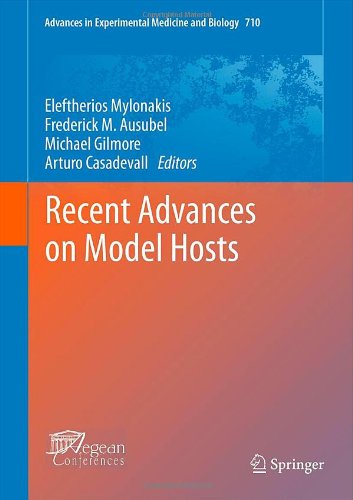

Most ebook files are in PDF format, so you can easily read them using various software such as Foxit Reader or directly on the Google Chrome browser.
Some ebook files are released by publishers in other formats such as .awz, .mobi, .epub, .fb2, etc. You may need to install specific software to read these formats on mobile/PC, such as Calibre.
Please read the tutorial at this link: https://ebookbell.com/faq
We offer FREE conversion to the popular formats you request; however, this may take some time. Therefore, right after payment, please email us, and we will try to provide the service as quickly as possible.
For some exceptional file formats or broken links (if any), please refrain from opening any disputes. Instead, email us first, and we will try to assist within a maximum of 6 hours.
EbookBell Team

4.1
30 reviewsMost studies of bacterial or fungal infectious diseases focus separately on the pathogenic microbe, the host response, or the characterization of therapeutic compounds. Compartmentalization of pathogenesis-related research into an analysis of the “pathogen”, the “host,” or the “antimicrobial compound” has largely been dictated by the lack of model systems in which all of these approaches can be used simultaneously, as well as by the traditional view that microbiology, immunology, and chemical biology and pharmacology are separate disciplines. An increasing number of workers from different fields have turned to insects, fish, worms and other model hosts as facile, ethically expedient, relatively simple, and inexpensive hosts to model a variety of human infectious diseases and to study host responses and innate immunity. Because many of these hosts are genetically tractable, they can be used in conjunction with an appropriate pathogen to facilitate the discovery of novel features of the host innate immune response.
This book provides a series of reports from the 1st International Conference on Model Hosts. This first of its kind meeting focused on invertebrate, vertebrate and amoeboid systems used for the study of host-pathogen interactions, virulence and immunity, as well as on the relevance of these pathogenesis systems and mammalian models. Importantly, a common, fundamental set of molecular mechanisms is employed by a significant number of microbial pathogens against a widely divergent array of metazoan hosts. Moreover, the evolutionarily conserved immune responses of these model hosts have contributed important insights to our understanding of the innate immune response of mammals.
This book provides a series of reports from the 1st International Conference on Model Hosts. This first of its kind meeting focused on invertebrate, vertebrate and amoeboid systems used for the study of host-pathogen interactions, virulence and immunity, as well as on the relevance of these pathogenesis systems and mammalian models. Importantly, a common, fundamental set of molecular mechanisms is employed by a significant number of microbial pathogens against a widely divergent array of metazoan hosts. Moreover, the evolutionarily conserved immune responses of these model hosts have contributed important insights to our understanding of the innate immune response of mammals.